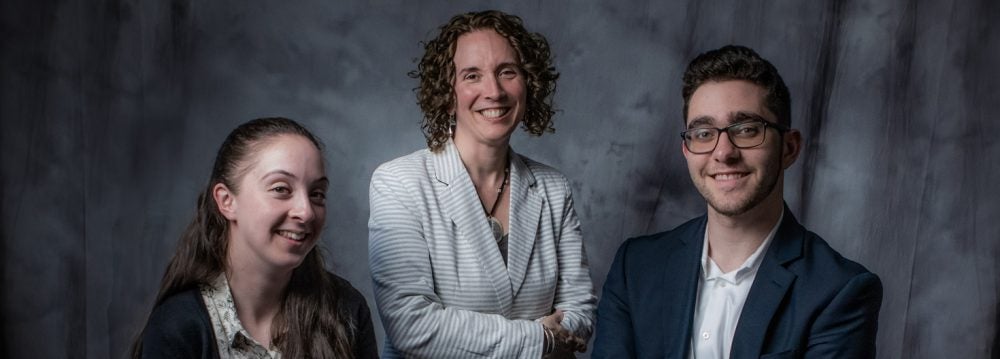When he did sleep, Christopher Parisella’s dreams and nightmares were variations on the same theme: the Boren Scholarship.
Parisella ’19, a political science and writing and rhetoric major with minors in French and international development, had devoted nearly a year of his life to the process of applying for the coveted scholarship, awarded to undergraduates seeking to study language abroad. He wanted to go to Senegal and study French and Wolof, a language of Senegal, the Gambia, and Mauritania.
Win or lose, though, Parisella knew that the time he’d invested had already paid off. He’d examined his course of study, his extra-curricular activities, his goals for the future, and developed a clarity of purpose and an appreciation for how seemingly disparate activities coalesced around his two principal interests: foreign policy and international politics. “It’s like looking back and looking forward and recognizing what direction I’m headed in now,” Parisella said.
Students who apply for nationally competitive scholarships and fellowships through the Office of National Fellowships and Academic Opportunities say that it’s doing the work necessary to compete that gives them such a sense of accomplishment. It’s what Director Kathleen Maher hopes for students. “We focus on the process rather than the winning,” Maher said.
Cheryl Foster, professor of philosophy, who founded the office in the mid-1990s with a core of 20 faculty members, agreed. “We want students to recognize the power of the experience. The process can help coagulate an awareness of self,” she said. “And a student can develop a clear sense of where they’re headed.”
Jenna Ziegelmayer ’18, who’ll graduate with three majors, writing and rhetoric, communication studies and Spanish, as well as a leadership studies minor, is one of two URI graduating seniors selected for a Fulbright Scholarship this year. After commencement, she’ll head to IE University in Spain to take a position as a teaching assistant. She credits the Office of National Fellowships and Academic Opportunities and Maher with making a Herculean task manageable. “The application looked so intimidating and complicated, but (Maher) was always there to help.”
In its 20-plus years, URI’s Office of National Fellowships and Academic Opportunities has seen students win the world’s most prestigious fellowships and scholarships such as the Rhodes, the Fulbright, the Goldwater, and the Truman. This year URI was named a top producer of Gilman Scholarship winners. Since 2009-10, in competitions for awards requiring a campus process (not all do), half of all URI student applicants make it through the first rounds of competition and a quarter of all candidates win the award, grant, fellowship or scholarship sought, Maher said. “These fellowship winners are the academic equivalent of our student-athletes. They have put in the hard work. They compete in regional and national pools, often as the underdogs.”
A large number of applicants hail from private institutions, Maher explained, another reason she tries to keep students focused on the intrinsic rewards of the application process. “Just being in this pool speaks volumes about their accomplishments and future potential,” Maher said.
Back to Chris Parisella’s potential. He had done all he could. He’d gotten the letters of recommendation from professors. He’d talked to past winners. He’d researched the socio-economic and political landscape of Senegal. He’d followed applicant forums online. He’d written and rewritten his essays.
The day the winners were announced Parisella obsessively checked his phone. “During class — which is bad,” he said. “I was at my job at the Intramural Office when I finally saw that I’d won. I jumped up and yelled, ‘I got it!’ All that anxiety was released. I emailed everyone.”
In June, Parisella heads to the University of Florida in Gainesville where he will be participating in an eight-week study of advanced French and Wolof at the African Language Flagship Institute. Then he will fly to Senegal where he’ll spend four months at the West African Research Center continuing his language classes as well as studying Senegalese culture.
These days, it’s excitement that keeps him up at night.

